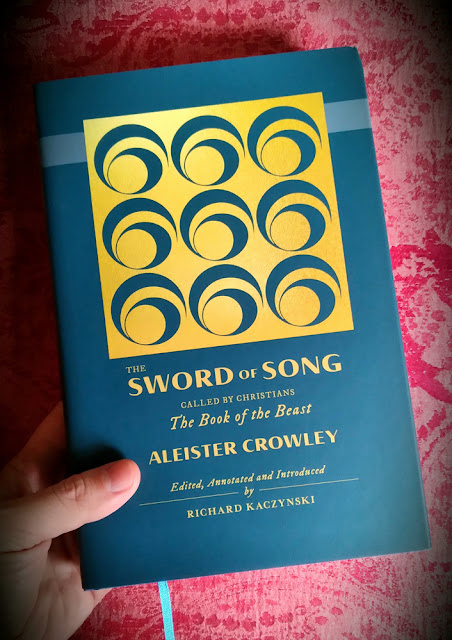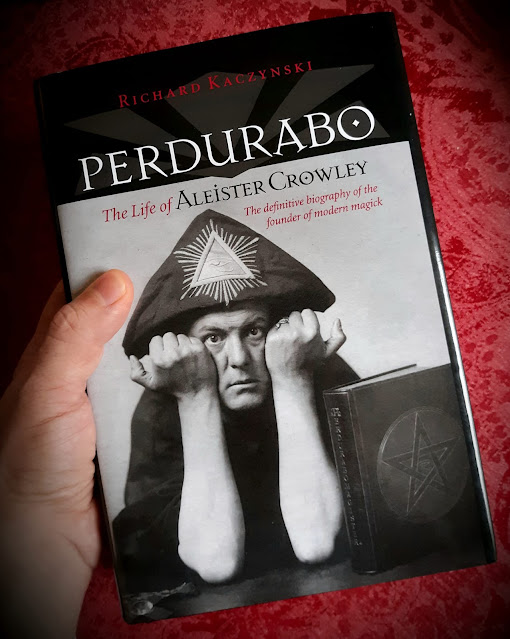 |
| Manifest Thy Glory. NOTOCON. 2011. Ordo Templi Orientis. O.T.O. |
I'm Enjoying "Manifest Thy Glory"
Manifest Thy Gloryoffers a selection of papers from the eighth biennial National Ordo Templi Orientis Conference (NOTOCON) of the United States Grand Lodge of O.T.O., held in the Valley of Detroit, Michigan, in 2011 EV. The papers cover diverse topics including the Holy Guardian Angel, talismans in magick, spatial orientation in ritual, and other magical methods; occult history and biography, including the Stele of Revealing and Ida Craddock; promulgation of Thelema through publishing and podcasts; textual analysis from Catullus to “Liber Trigrammaton;” a touching reminiscence from the incomparable Lon Milo DuQuette; and even space, the final frontier. Other highlights include a street guide to Thelemic historical sites in Detroit, and the address given by U.S. National Grand Master Sabazius. They represent some of best modern practical and scholarly work on Ordo Templi Orientis, Thelema, and the magick of Aleister Crowley.
The first NOTOCON conference took place in 1997 EV in Akron, Ohio, and has since been held on alternate years in different cities around the United States. Manifest Thy Gloryis the third collection of papers from the national conference to be made available, following the inaugural volume Beauty & Strengthfor the 2007 EV conference.
Ordo Templi Orientis is an international fraternal order of men and women devoted to the pursuit of individual liberty, the study of magick, and the promulgation of the Law of Thelema. Founded in the early twentieth century, it has been shaped by such leading lights as Carl Kellner, Theodor Reuss, Aleister Crowley, Karl Germer and Grady Louis McMurtry.





